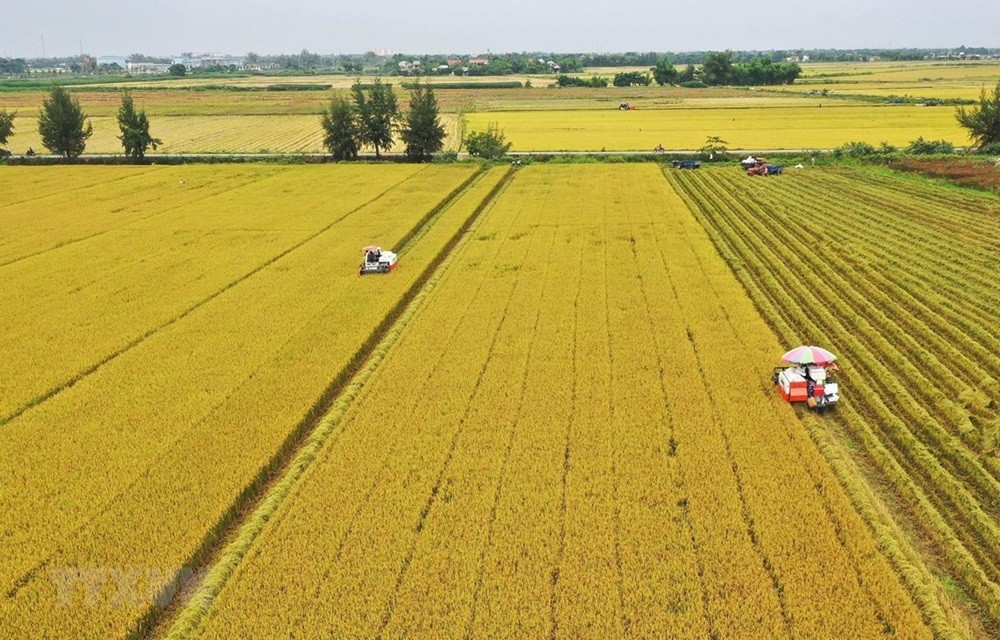
Public-private partnership needed for sustainable rice farming
Latest
 |
| PPP is crucial in the development of sustainable, low-emission rice-farming in the Mekong Delta region - Illustrative photo. (Photo: VNA) |
The project, which will oversee the development of 1 million hectares of low-emission high-quality rice production in the Mekong Delta region to 2030, will bring numerous benefits. Most important, it will promote added value throughout the entire rice production chain, raising farmers' incomes, ensuring sustainable development amid worsening climate change, and contributing to green growth.
According to Deputy Minister of Agriculture and Rural Development (MARD) Tran Thanh Nam, the project will focus on measures to reduce production costs for farmers and expand carbon-certified rice production.
Deputy Director of the Crop Production Department Le Thanh Tung, a department of MARD, said mobilising components in the value chain through PPP programmes is a top priority in implementing the project. Promoting the application of technical advances in farming will help solve difficulties for farmers, on the pathway to developing a sustainable rice production chain, he added.
The establishment of the PPP task force on rice aims to boost linkages in sustainable rice production and leverage agricultural technology to support the activities of the rice industry.
Le Quoc Thanh, Director of the National Agricultural Extension Centre, said the project will offer an opportunity to re-position Vietnam’s rice sector. He called for joint engagement of private areas, businesses, and producers in the project.
Head of Sustainable Value Chains of Grow Asia Misha Rabat said Grow Asia wants to connect public and private sector partners and mobilise resources from funds in order to support food system innovation, thus improving the rice industry's adaptation to climate change and increasing incomes for rice farmers.
For their parts, many Vietnamese businesses have also expressed their interest and willingness to join in this project. According to Chairman of Loc Troi Group Huynh Van Thon, the firm has organised chain and cooperative model-based production and applied technologies in production activities.
Vietnam's rice sector has so far ensured food security and created jobs and income for 9.3 million households in rural areas, making it a decisive factor in hunger eradication and poverty reduction. The nation currently ships rice products to more than 150 countries and territories, accounting for more than 15% of the world’s total rice exports.





















